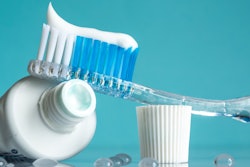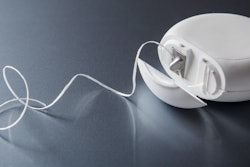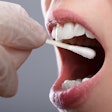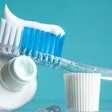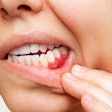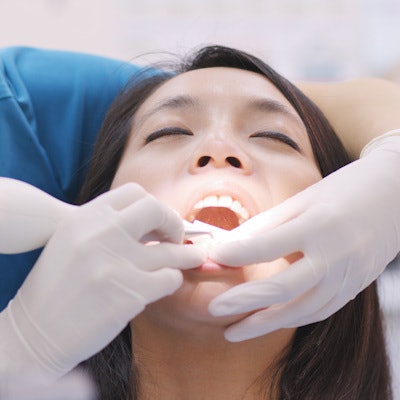
A multienzyme lozenge may reduce plaque formation and slow bacterial growth in saliva, making it a valuable addition to regular plaque removal methods, according to a study recently published in the Journal of Dentistry.
Furthermore, the lozenge reduced new plaque buildup within one day and slowed bacterial growth in plaque and saliva over seven days. However, it did not affect plaque scores after seven days, the authors wrote.
"The lozenge may be an adjunct to regular mechanical plaque removal," wrote the authors, led by Dr. Sebastian Schlafer of Aarhus University in Denmark (J Dent, June 1, 2024, 105107).
The study included 24 healthy adults who were divided evenly into active and placebo groups. Participants consumed one lozenge three times daily for seven days without performing any oral hygiene procedures, they wrote.
The Turesky Modification of the Quigley-Hein Plaque Index (TM-QHPI) was used to measure differences in new plaque accumulation at baseline and after one and seven days of intervention. Gingivitis development after seven days was assessed using the gingival index (GI). Plaque and saliva samples were collected at baseline and after seven days and analyzed through 16S rRNA gene sequencing, according to the study.
After one day of intervention, the average TM-QHPI value was significantly lower in the active group compared to the placebo group relative to the baseline period (day 0 to day 1: active: -0.82; placebo: -0.09; 95% confidence interval [CI], -1.28 to -0.18; p = 0.012).
After seven days of intervention (day 1 to day 8), the average TM-QHPI values did not significantly differ between groups (active: 2.36; placebo: 2.85; 95% CI, -1.58 to 0.61; p = 0.37).
Moreover, the GI values remained stable compared to baseline, with no significant difference between groups (active: -0.061; placebo: 0.061; 95% CI, -0.63 to 0.39; p = 0.62). Plaque removal by toothbrushing varied from 0% to 100% in the active group and from 20% to 83% in the placebo group, showing no significant difference, they wrote.
However, the study had limitations, including its small, exploratory sample size. Additionally, further research is needed to reveal long-term effects, the authors added.
"In conclusion, the use of a lozenge containing multiple enzymes decreased the build-up of de novo plaque after one day in the absence of normal oral hygiene procedures, and slowed down the process of bacterial species increment in plaque and saliva after seven days of use," Schlafer wrote.





